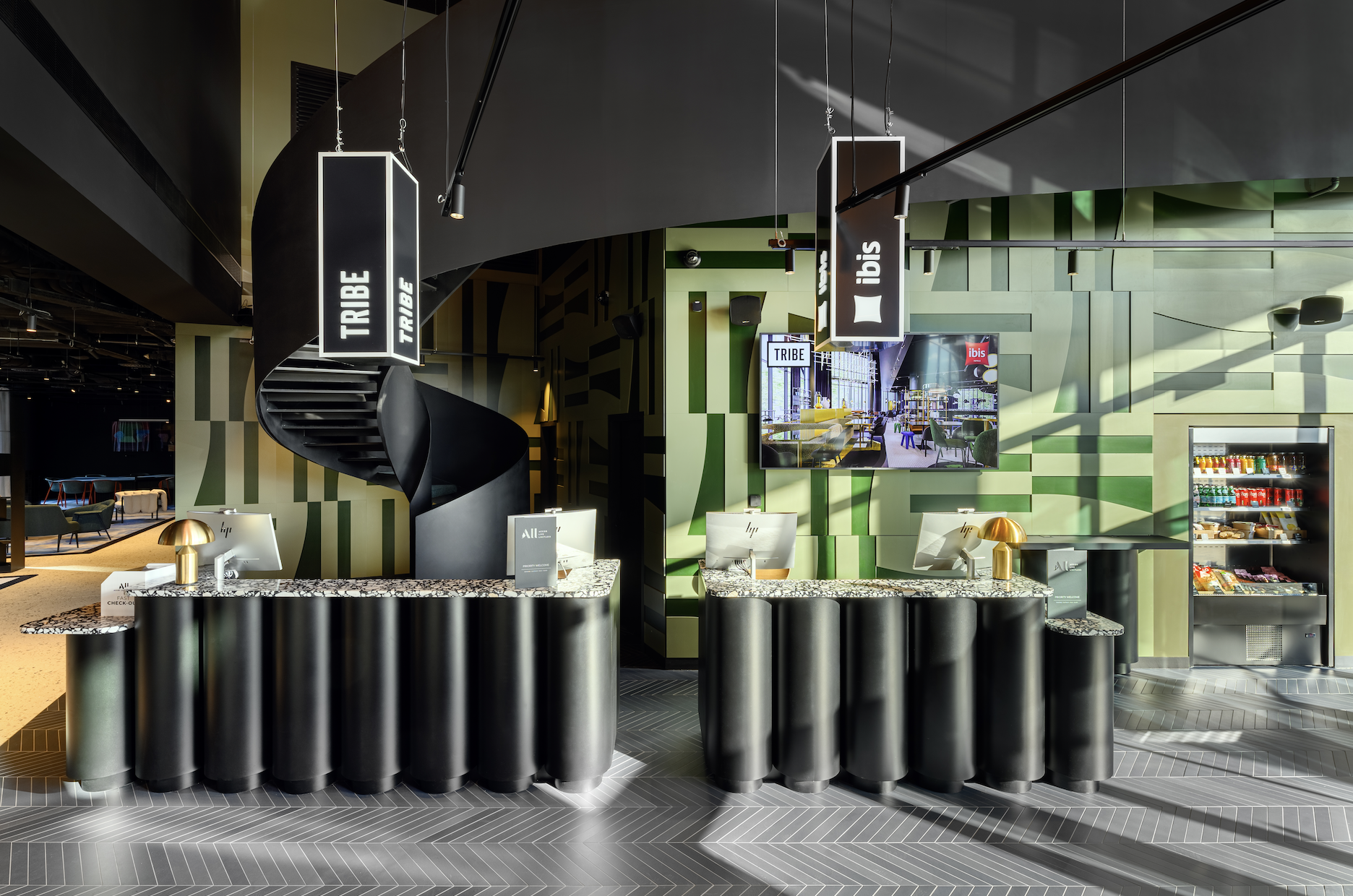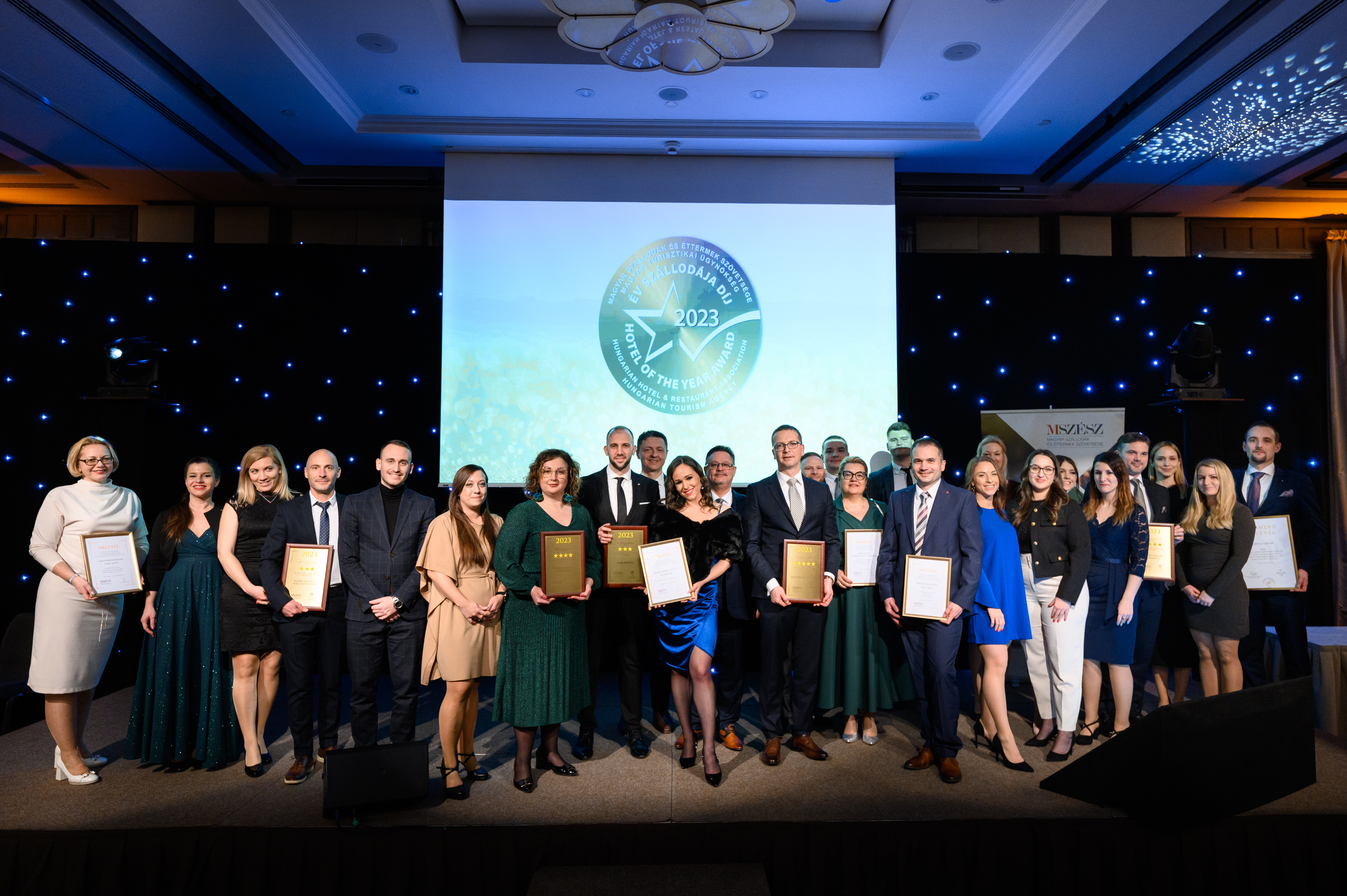An innovative approach to hotel business

The Corinthia Hotel Budapest received the Traveler’s Choice in luxury category this year from the world’s largest travel site TripAdvisor, was awarded with a Certificate of Excellence in 2011 and was among the top 25 in the Best Luxury Europe Hotels category a year earlier. The prestigious hotel in downtown Budapest now has a new man at the helm. General manager Thomas M. Fischer, who took up the position this spring, talks about his goals and his first few months in Budapest, and shares his future expectations.
Q: What were your goals when you were appointed to the role of general manager at the Corinthia Hotel Budapest this March?
A: Corinthia Hotel Budapest had always been the flagship hotel of the Corinthia chain. However, when Corinthia Hotel London opened last April, it somewhat took over this role and set the tone for all other hotels in our chain. Now, I would say that we are just a notch behind. So one of the main goals is to keep in line with our new brand vision, to bring us closer to Corinthia London. That requires mainly looking at the physical assets of the building. In terms of service delivery and facilities, we are probably quite close. At the same time, I see lots of opportunities in Corinthia Hotel Budapest: from a facility perspective, from a construction and flexibility point of view, and the number of options that we have here to offer.
At the hotel in Budapest it’s not about reorganizing things that have worked in the past, because there has been a lot of good work being done over the past ten years since the hotel has been opened. It has a good reputation and high level of services; the fact that Corinthia Hotel Budapest has been awarded with prestigious professional awards and recognitions every year proves this. So there is not much that we really need to change here. It’s a very good base and at a very high level, so our task is just working to make it even better every day.
Q: What have you achieved so far?
A: A lot of what I just said is mainly strategic goals. However, we have already completed several tasks since I came on board this spring. We are also focusing more on innovation, both in services and products. We are applying new and innovative approaches that distinguish us from our peers, such as a new recruitment concept. When I arrived to take over the leadership of the hotel, I felt that the marketing, PR and communication areas had been underdeveloped. So we have restructured our set-up and the way we work. A good example is how we recruit our management: for example our new communications director, Márta Róna, does not coming from the hotel industry. This choice was deliberate; I think this approach gives us an opportunity to look out of the box. We did the same when we hired our new chief engineer: he has never worked in a hotel before. So we have different people from different industries, which I think opens eyes to a whole new ballgame in many ways, because they look at things differently. This is actually what the company does across all its hotels: we try to see what’s working in other industries, and whether these practices can be applied in the hotel business. There are industries that are much more advanced than the hotel business when it comes to technology. For instance, you can purchase things in 5,000 shops in Germany with your mobile phone, or buy your air ticket with your Smartphone anywhere in the world. The hotel business is a bit behind in these terms, so we need to catch up in all sorts of ways.
Q: You have held executive positions in the hotel industry in your native Germany, but also China and Russia as well as in the Middle East. What is the biggest challenge you have to face when taking over a position in a foreign country and what was the case in Hungary?
A: I think that hotel business is very international. Our guests come from 40-50 different countries; there are different cultural aspects you have to be aware of and face every day.
Of course, working internationally is very different than going on a holiday. You are much more exposed to cultural shock. I think the biggest challenge when you go to a different country is the cultural aspect, and also personal habits. You need to know a little bit about the pitfalls. If you’re not acquainted with the all the dos and don’ts, you can easily make mistakes. I am very lucky in this respect, because I’ve always worked with very experienced professionals who gave me advice that helped me through the difficult times, especially at the beginning. One can be in the hotel business for years and know everything about it, but still not know anything about the country or the city one arrived in. But if you have a good superior or a good supporting team – as is the case in Hungary – that can help a lot.
Q: How were your first weeks in Hungary?
A: There was a different situation when I arrived in Hungary. My predecessor left several months before I took over, so the team here and my deputy were holding the fort before my arrival. So when I arrived I didn’t have the opportunity to relax, and although the team here did an excellent job in running things smoothly in hectic times, it has been hard work right from the beginning. Unfortunately, I still haven’t seen several sights of the city, but I’m doing my best to catch up, as I’m always curious about the country I live in and want to know more about it.
But nonetheless, I had a very positive first impression of Hungary, especially of the people here. They are all very polite and friendly, and the team in the hotel is very experienced too. So I consider myself rather fortunate. But at the same time, I came at a moment that showed a totally different sight because of what happened to national airline Malév. It was not the nicest time being in Hungary – from a business perspective, as you can imagine, it didn’t have such a positive effect on us. The first two weeks after my arrival were literally crisis management. The entire hotel industry felt the negative effects, I think. Looking at the five-star hotel business in the city, I’m almost certain that there are not many hotels this year that are really showing great improvement from last year.
Q: What can make up for the losses in your opinion?
As a result of the current situation in the Hungarian air travel market, the proportion of leisure and MICE (meetings, incentives, conferences and events) customers have changed. We need to accommodate our strategy to the new situation, and to make the best out of our existing services. We will put serious efforts into making our glorious and unique Royal Spa even more popular, especially as our caring and professionally trained health and beauty therapists can provide a full complement of treatments. Moreover we see massive opportunity in our Rickshaw restaurant where we are waiting our guests with five-star service and traditional Asian cuisine. So hopefully we will see more leisure customers coming, and we believe that the drop in MICE customers we had this year will probably bounce back next year. Therefore we are actually quite positive about 2013; I think we’ll see an upward trend. We do not foresee a major swing back into positive territory but things are going in the right direction. We are assuming a slight increase from this year to the next. However, we also feel that the market will be even more competitive than it already is.
Curriculum vitae
Thomas M. Fischer took over the GM position at the Corinthia Hotel Budapest in March. He has some 17 years of experience in the hotel industry. Before coming to Budapest, he worked as general manger of the Kempinski Hotel Gravenbruch in Frankfurt, Germany. Prior to that, he was hotel manager at the Kempinski Lufthansa Center in Beijing, China. He also gained experience in various senior executive positions at other international hotels in Germany, London and the Middle East. He graduated in hotel and catering management from the Bavaria Hotel School in Germany and completed his MBA at Reims Business School in France in 2010.
SUPPORT THE BUDAPEST BUSINESS JOURNAL
Producing journalism that is worthy of the name is a costly business. For 27 years, the publishers, editors and reporters of the Budapest Business Journal have striven to bring you business news that works, information that you can trust, that is factual, accurate and presented without fear or favor.
Newspaper organizations across the globe have struggled to find a business model that allows them to continue to excel, without compromising their ability to perform. Most recently, some have experimented with the idea of involving their most important stakeholders, their readers.
We would like to offer that same opportunity to our readers. We would like to invite you to help us deliver the quality business journalism you require. Hit our Support the BBJ button and you can choose the how much and how often you send us your contributions.








